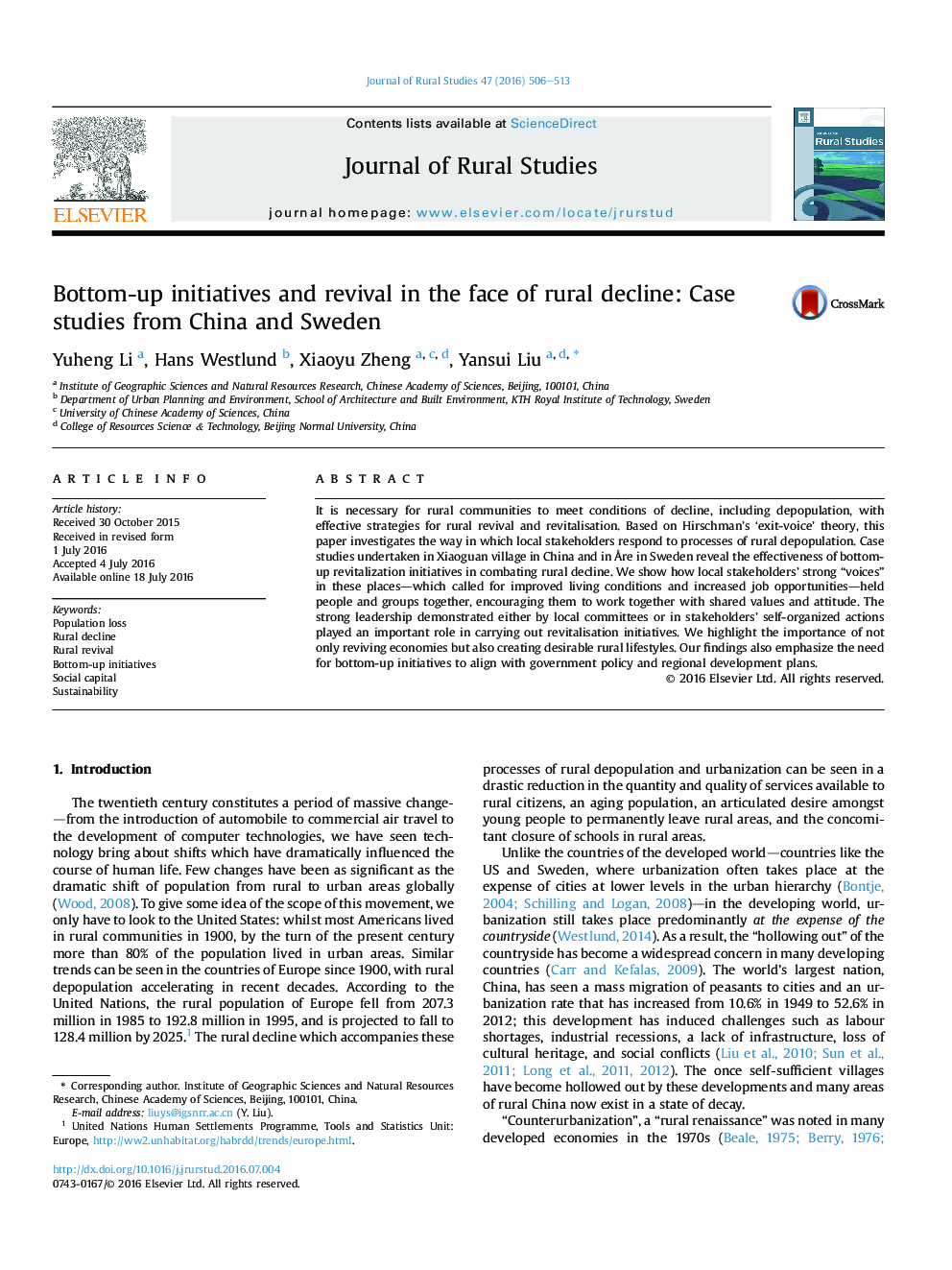| Article ID | Journal | Published Year | Pages | File Type |
|---|---|---|---|---|
| 6460159 | Journal of Rural Studies | 2016 | 8 Pages |
It is necessary for rural communities to meet conditions of decline, including depopulation, with effective strategies for rural revival and revitalisation. Based on Hirschman's 'exit-voice' theory, this paper investigates the way in which local stakeholders respond to processes of rural depopulation. Case studies undertaken in Xiaoguan village in China and in à re in Sweden reveal the effectiveness of bottom-up revitalization initiatives in combating rural decline. We show how local stakeholders' strong “voices” in these places-which called for improved living conditions and increased job opportunities-held people and groups together, encouraging them to work together with shared values and attitude. The strong leadership demonstrated either by local committees or in stakeholders' self-organized actions played an important role in carrying out revitalisation initiatives. We highlight the importance of not only reviving economies but also creating desirable rural lifestyles. Our findings also emphasize the need for bottom-up initiatives to align with government policy and regional development plans.
